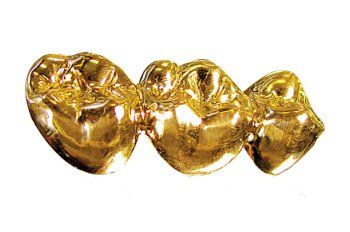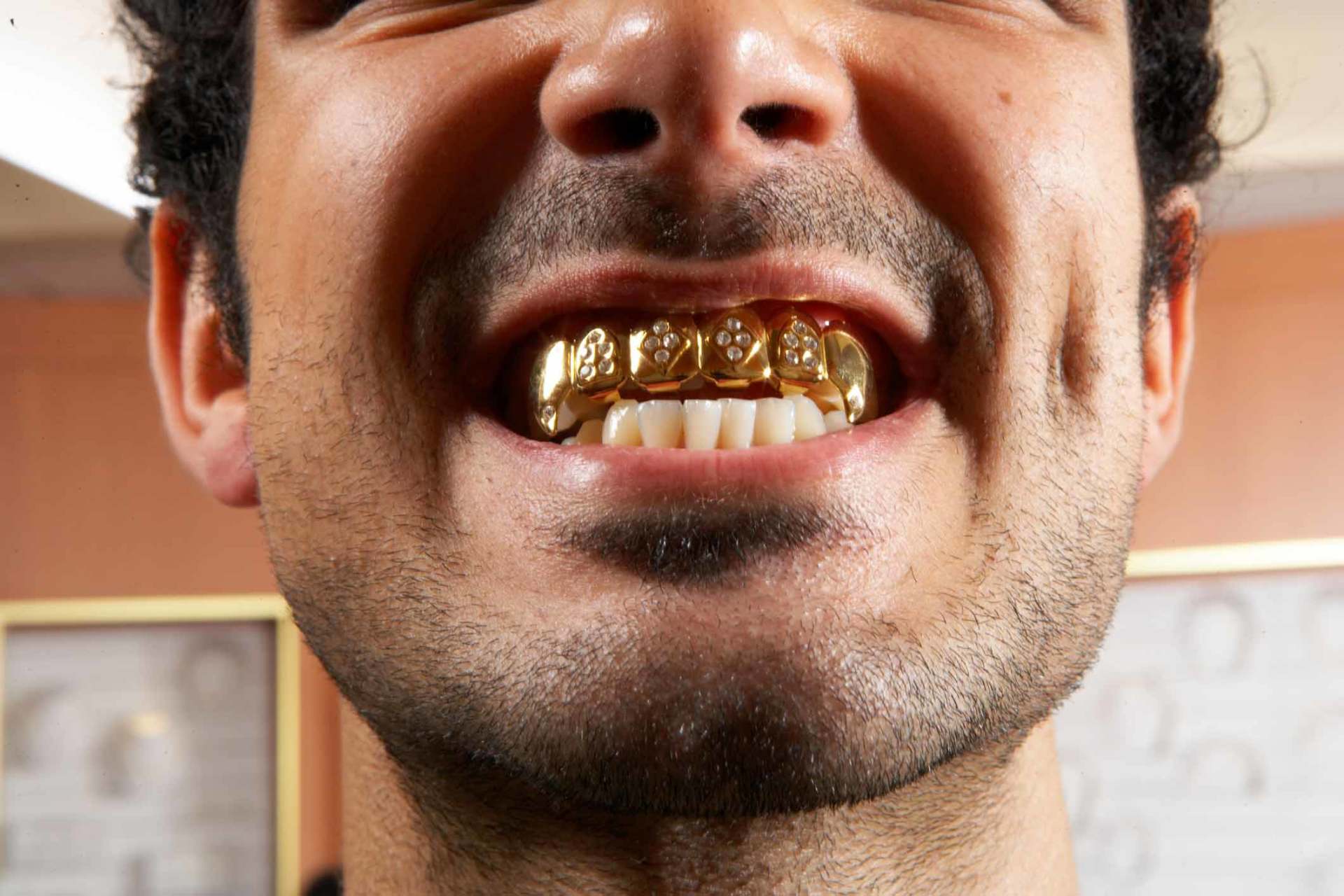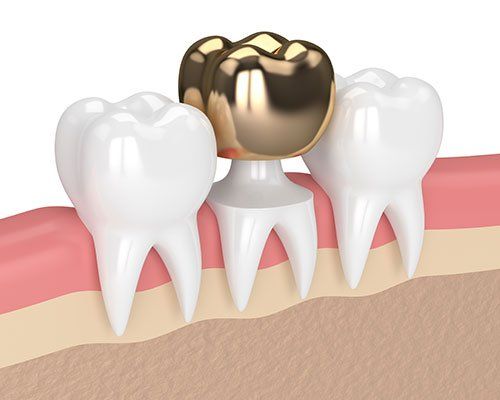3 Things Dental Patients Need to Know About Gold Teeth
- By drbrett@lakeshorecapital.biz
- •
- 26 Jun, 2017
- •

When you think about gold teeth, you may picture any number of versions of gold teeth, such as the grills sported by rap and hip hop artists to antique dentures you might see in a museum. Gold has long been used in dentistry for fillings, crowns, and even complete tooth replacement.
In fact, while many patients assume that gold is a specialty material or is no longer used, gold can sometimes still be the best option for dental work, even when compared to modern alternatives.
In fact, while many patients assume that gold is a specialty material or is no longer used, gold can sometimes still be the best option for dental work, even when compared to modern alternatives.
In this blog, here are three things you should know if you’re considering gold teeth.
Why Do Dentists Use Gold?
The inside of the human mouth is an inhospitable environment. The teeth in particular have to endure large amounts of pressure, high exposure to corrosive foods and beverages, and an enormous concentration of naturally occurring bacteria that must be kept in check to avoid decay.
In order for a material to be practical for use in the mouth, the material must be able to withstand these everyday stressors without cracking or corroding. Gold adheres easily to tooth enamel and thus resists the issues that can arise when using other materials for dental work.
Gold was one of the first materials used for modern dental applications, like tooth fillings. At the time, gold was much more readily available than silver, especially in the smaller quantities needs for dentistry.
Additionally, gold is one of the most malleable natural metals. This malleability allows dentists to shape gold dental appliances into the precise shape required for an application. The flexibility of gold alloys and gold foil has made and continues to make gold dental work some of the most precise and best fitting available.
Over time, gold expands and wears in a manner that's similar to natural teeth, making it one of the longest lasting dental materials available.
When Would Gold Be the Best Material Choice?
In its early usage, gold was the most common supplemental dental material. Today, many dentists opt to use other metals and substances like dental resin for the majority of dental work.
However, this shifting in the industry has not rendered dental gold obsolete. Your dentist may recommend gold when:
However, this shifting in the industry has not rendered dental gold obsolete. Your dentist may recommend gold when:
- The dental work you need is confined to the back teeth where the color of the supplemental material is not a primary concern
- You experience allergic reactions to other common dental metals
- You have a history of cracking fillings or crowns made out of weaker materials
Of course, gold is also the material of choice for cosmetic dental work where the goal is to give one or more a false gold facade.
Do You Have to Go to a Special Type of Dentist to Have Gold Work Done?
If you need work performed on an existing gold dental appliance, most dentists will be able to provide you with basic care and recommendations.
However, if you have a strong preference for gold fillings, caps, and crowns or want custom gold work done, you should look for a dentist who specializes in dental gold.
These specialty dental care providers tend to have more of the materials on hand necessary for new gold dental work and the experience required to provide you with the desired results.
If you have more questions about dental gold, discuss your concerns with the expert team at Gold Teeth Baton Rouge. We specialize in dental gold, from cosmetic uses like grills, to practical applications such as fillings and crowns.
We can help you decide if gold is the right dental replacement material for missing teeth or the best option to repair and prevent future tooth decay.




